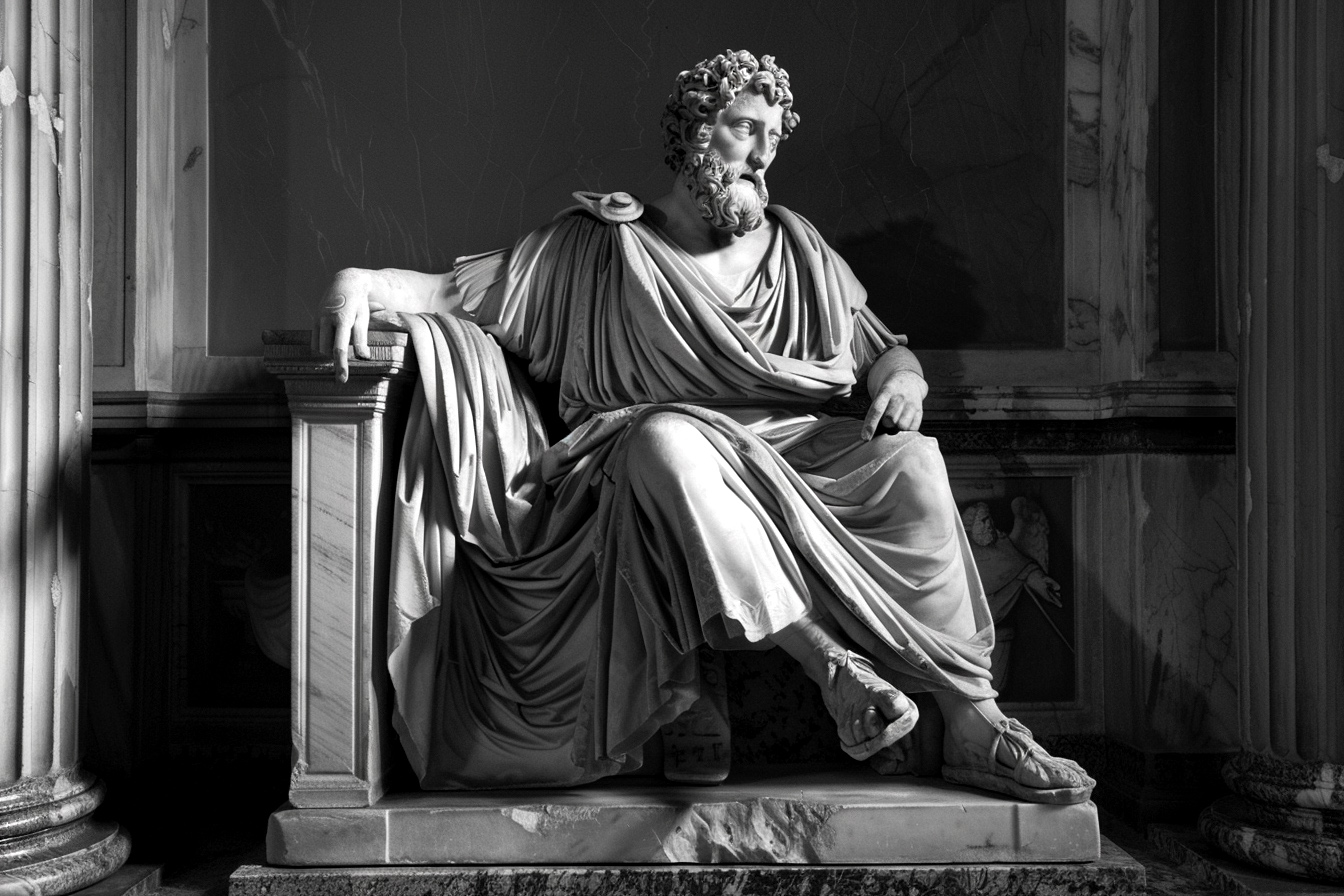The Stoic philosophers held a distinct perspective on self-discipline, viewing it as the most essential virtue guiding human character and conduct. For the Stoics, self-discipline meant imposing reason and rational judgment on destructive emotions and desires to bring them in harmony with nature. As Epictetus declared, “First learn the meaning of what you say, and then speak.” Understanding and self-discipline went hand-in-hand for the followers of Stoic doctrine. Stoics aimed to attain unshakable mental fortitude by exerting rigorous self-control through reasoned contemplation in the face of events beyond their control.
The Role of Reason and Logic
“Don’t simply say you have read books. Show that through them you have learned to think properly.” – Epictetus
The Stoic philosophers placed tremendous weight on utilizing reason and logic to direct the practice of self-discipline. Clear thinking provided the foundation for sound judgment and tempering destructive tendencies. Epictetus’s quote demonstrates the Stoic view that self-discipline emerges from applying reason to distinguish what lies within one’s control. Furthermore, discipline was required to rein in volatile emotions before logic was abandoned.
Discipline Leads to Mental Toughness
“Never let the future disturb you. You will meet it, if you have to, with the same weapons of reason which today arm you against the present.” – Marcus Aurelius.
The daily exertion of self-control played a vital role in the Stoic quest for resilience against misfortune. A hardened mental armor was forged by resisting flighty impressions and regulating destructive emotions. Seneca’s words echo this sentiment: “The mind anxious about the future will come to grief over things at hand.” This captures how imposing discipline against worry promotes unassailable peace of mind. Training attention on the present moment also bolstered mental vigor against external disruption.
Disciplining Desires and Mastering Emotions
“The best revenge is not to be like thy enemy.” – Marcus Aurelius.
The regulation of excessive wants and mastery over emotions constituted two central pillars of Stoic self-discipline. The Stoics believed one could attain self-sufficiency and contentment by keeping one’s impulses in check. Resisting endemic societal emotions like grief, anger, and envy formed part of the Stoic disciplined existence. As Marcus Aurelius wrote, This encapsulates the emotional control Stoics felt essential for subduing hatred and external provocations. Training to endure all dispreferred events and ingrained feelings enabled the Stoic to approach the extremes of human experience with dignified discipline.
Self-Discipline Brings True Freedom
“Man is disturbed not by things, but by the views he takes of things.” – Epictetus.
While total self-determination remains impossible given our inextricable ties to external chance events, the Stoics maintained that true liberty emerges from rigorously disciplining oneself. Since impressions alone can be trained through the conscious discipline of faculty, the mind gains sovereignty over any outward potential for disturbance. This interior discipline forms the bedrock of freedom for the Stoics rather than chasing external pursuits. A self-imposed control system creates a self-realized state of liberty by aligning judgments with the greater flow of events.
Case Study: Seeking Stoic Self-Discipline
Howard is a 42-year-old middle manager struggling to feel overwhelmed and anxious in his high-pressure job. He has trouble sleeping, constantly worrying about presentations and meetings, and snaps in frustration at minor issues with his team. His doctor suggested reading up on Stoic philosophy to help manage stress.
As Howard read about the Stoic notions of self-discipline, he connected deeply with the idea that much of his suffering came from his judgments, not external events. He recognized he needed more discipline over his emotions and reactions.
He began a daily practice of Aurelius’ technique to pause and examine whether a troubling impression warranted an emotional response. This allowed him to halt automatic anxiety and irritation when they arose. Controlling his judgments strengthened his resilience.
To build mental toughness, Howard also followed Stoic advice to visualize future meetings that provoked anxiety so they would lose their power over him. This discipline of thought prevented worrying.
To curb frustrated outbursts at work disruptions, Howard applied Epictetus’ phrase, “It’s not things that disturb people, but their interpretations of things.” By controlling his impressions of surprises, Howard maintained composure.
Implementing Marcus Aurelius’ view to “live happily within the soul,” Howard directed energy inward to govern reactions to events rather than seeking external fixes beyond his control. This path of rigorous self-discipline led Howard to a state of self-realized freedom and workplace stability.
Key Takeaways
- The Stoics saw self-discipline as essential for cultivating sound judgment and resilience of character. Mastering one’s responses and impressions was paramount.
- Reason and logic were vital guides for constructing a system of self-imposed discipline aimed at emotional regulation and desire control. Careful discernment informed decisions.
- Practicing self-denial of disruptive impulses fortified tenacity of mind and personal mettle against adversity. Restricting reactions augmented mental toughness.
- Harnessing feelings and material longings through disciplined habits afforded more self-sufficiency and fulfillment. Moderating wants and moods boosted contentment.
- Governing innate tendencies enabled a self-realized, autonomous rule over the judgments, allowing external events to disturb equanimity—command of impressions spells internal freedom.
Conclusion
The ancient Stoic philosophers preached a doctrine of rigorous self-discipline centered on judgment mastery as imperative for a tranquil, resilient, and liberated character. Personal resources could sustain external volatility without internal disruption by imposing reason over emotions and actively curbing destructive desires. The goal was clear-sighted responses signaling mental self-rule and emotional self-restraint. Regularly applying logic and rational discernment to impressions eventually cultivated an abundance of self-possession and ethical impulse control. The environment yielded inner gains of freedom, level-headedness, and informed decision-making through targeted self-discipline.
